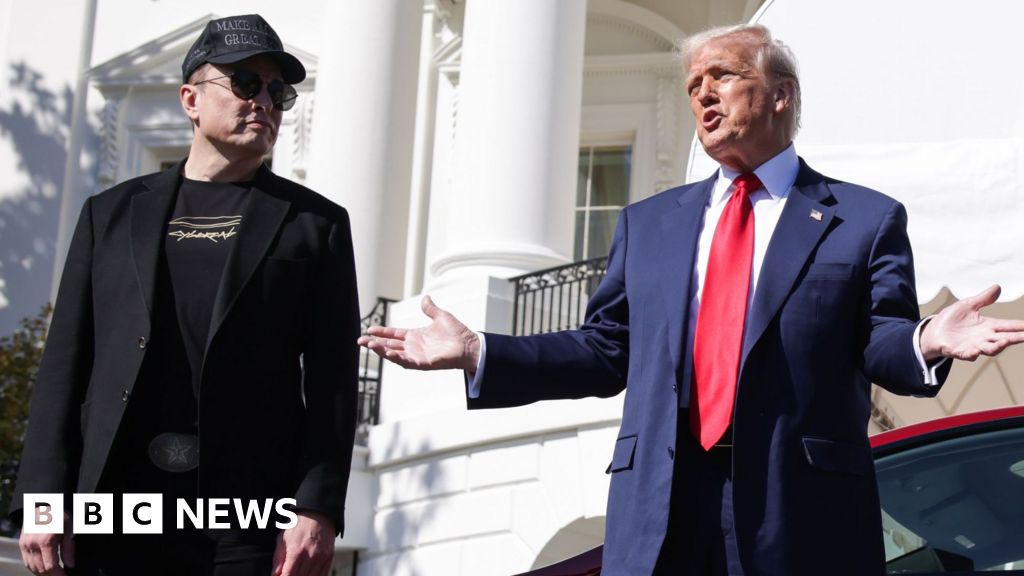The government borrowed more than expected in the year to March due to increased spending on pay and benefits, according to official figures.
Borrowing, the difference between spending and income from taxes, was £151.9bn in the year to March, up £20.7bn from the year before.
The amount borrowed was much higher than the £137.3bn predicted by the UK's official forecaster.
The higher borrowing figures come as Chancellor Rachel Reeves is set to attend the annual meetings of the IMF and World Bank in Washington at a pivotal time for the UK economy.
The Office for National Statistics (ONS), which released the figures, said borrowing for the financial year was the third highest on record.
"Despite a substantial boost in income, expenditure rose by more, largely due to inflation-related costs, including higher pay and benefit increases," said Grant Fitzner, chief economist at the ONS.
He added at the end of the financial year, debt remained "close to the annual value of the output of the economy, at levels last seen in the early 1960s".
On Tuesday, the IMF said the UK economy would grow less than previously predicted, up 1.1% in 2025 instead of 1.6%, in part due to the global fallout from US trade tariffs.
The ONS said that in March alone, borrowing was £16.4bn, which marked the third-highest March borrowing since monthly records began in 1993.
Higher borrowing has led to some economists to suggest spending cuts and tax rises could be on the way, if the chancellor wants to stick to her self-imposed borrowing rules.
"Reeves may not be too far away from having to raise money again in the Autumn Budget, by cutting spending and/or raising taxes, to meet her fiscal rules," said Ruth Gregory, deputy chief UK economist, at Capital Economics.
Darren Jones, chief secretary to the Treasury, said the government would "never play fast and loose with the public finances" and reiterated that the rules on borrowing were "non-negotiable".
"That's why our fiscal rules are non-negotiable and why we are going through every penny of taxpayer money spent, line by line, for the first time in 17 years to tear out waste," he added.
However, shadow business secretary Andrew Griffith called the figures "grim".
"Combined with growth downgrades by the IMF yesterday, they show you can't spend your way to prosperity," he said. "Only businesses create jobs and growth but this government are hiking up taxes, piling on more red tape and attacking wealth creators."
Shadow chancellor Mel Stride said the figures "lay bare the price the British people are paying for Rachel Reeves' choices", and called the figures "alarming, but not surprising".
 5 hours ago
26
5 hours ago
26







